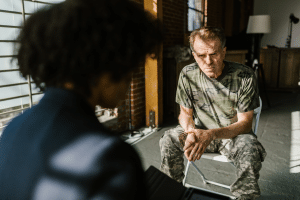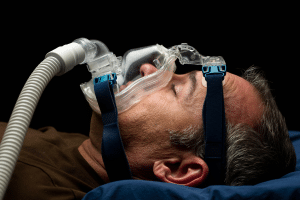Scoliosis is often thought of as a childhood condition, but it can also develop in adulthood, including as a result of military service. Many veterans suffer from scoliosis due to the physical demands and injuries sustained during service. Understanding scoliosis and veterans disability claims is essential for those seeking compensation and support from the Department of Veterans Affairs (VA).
Table of Contents
What is Scoliosis?
The Mayo Clinic defines scoliosis as a sideways curvature of the spine that is most often diagnosed during adolescence. While some cases of scoliosis are linked to conditions like cerebral palsy or muscular dystrophy, the exact cause of most childhood scoliosis cases remains unknown. Mild cases may go unnoticed, but more severe curvatures can worsen over time, leading to significant disability.
Common Symptoms of Scoliosis
- Uneven shoulders
- A visibly curved spine
- One shoulder blade appearing more prominent than the other
- One hip higher than the other
- A noticeable prominence on one side of the back when bending forward
Causes and Risk Factors for Scoliosis
Although scoliosis is commonly associated with childhood, there are multiple potential causes, including:
- Neuromuscular disorders (e.g., cerebral palsy, muscular dystrophy)
- Birth defects affecting spinal development
- Previous surgeries or injuries involving the spine
- Spinal cord irregularities
Risk factors include age (typically developing in adolescence), gender (girls are more likely to experience worsening curvatures), and family history.
Scoliosis in Veterans: Service-Connected Causes
For veterans, scoliosis may develop or worsen due to military service. If a service member enters the military with no history of scoliosis and later develops back pain or spinal curvature, the condition may be service-related.
Post-Traumatic Scoliosis
Scoliosis can develop following trauma to the spine. If a veteran sustains a back injury during service—whether from combat, training, or repetitive strain—the resulting damage can lead to post-traumatic scoliosis.
Service Aggravation of Pre-Existing Scoliosis
Even if a veteran had mild scoliosis before service, military activities could worsen the condition beyond its natural progression. This is an important point in VA disability claims, as veterans can receive compensation for conditions that were aggravated during their service.
Scientific Literature Supporting Military-Related Scoliosis
Several studies highlight the connection between military service and back injuries:
- “Occupational Back Disability in U.S. Army Personnel” (Military Medicine, 1999): This study highlights the high rate of back injuries among military personnel.
- “Low Back Pain During Military Service Predicts Low Back Pain Later in Life” (PLoS One, March 2017): This research demonstrates that back pain experienced during military service is strongly linked to chronic back problems after service.
- “Low Back Pain Fact Sheet” (National Institute of Neurological Disorders and Stroke): This fact sheet lists jobs that involve heavy lifting, pushing, pulling, and twisting as significant contributors to chronic back pain, which aligns with many military occupations.
- “Mechanical Low Back Pain” (American Family Physician): This study highlights how repetitive trauma and overuse contribute to chronic low back pain.
- “Post-Traumatic Arthritis: Overview of Mechanisms and Role of Inflammation” (Rheumatic and Musculoskeletal Diseases): This research indicates that arthritis and spinal degeneration often do not become clinically evident until symptoms appear, further supporting the possibility of service-related scoliosis.
Challenges Veterans Face in Scoliosis Disability Claims
Veterans may face difficulties in proving service connection for scoliosis, particularly if they did not report back injuries while on active duty. However, studies indicate that many service members underreport musculoskeletal injuries due to concerns about career impact.
Underreporting of Injuries in the Military
A study published in Sports Health examined the underreporting of injuries among U.S. Army soldiers. Surveys showed that 49% of injuries were not reported, supporting the idea that many veterans may have developed scoliosis due to service-related injuries that were never formally documented.
MOS and Occupational Stressors
Certain military occupational specialties (MOS) carry a higher risk of back injuries. Veterans who performed jobs involving heavy lifting, prolonged standing, or repeated impact (e.g., infantry, paratroopers, mechanics) may be at higher risk for scoliosis and other spinal conditions.
How Veterans Can Strengthen Their Disability Claim
If a veteran is seeking VA disability benefits for scoliosis, they should consider the following steps:
- Medical Evidence – Obtain medical records, X-rays, and physician reports linking scoliosis to service-related activities or injuries.
- Service Records – Gather documentation of any in-service complaints of back pain, injuries, or medical visits related to spinal issues.
- Buddy Statements – Statements from fellow service members can help support claims if medical documentation is lacking.
- Military Occupational Specialties (MOS) Research – Use studies and official MOS descriptions to demonstrate the likelihood of back injuries associated with specific jobs.
- Independent Medical Opinions – A medical nexus letter from a physician specializing in musculoskeletal conditions can strengthen a claim by explaining how scoliosis is related to military service.
Scoliosis and Veterans Disability – Conclusion
Scoliosis is often dismissed as a childhood condition, but for veterans, it can be a significant disability stemming from military service. Whether due to trauma, repetitive strain, or aggravation of a pre-existing condition, scoliosis can severely impact a veteran’s quality of life. By understanding the connection between scoliosis and military service, veterans can build stronger disability claims and access the benefits they deserve.
If you are a veteran experiencing scoliosis-related issues, seek medical attention and explore your options for VA disability benefits. Proper documentation and expert support can make a significant difference in your claim outcome.
Also read: Don’t Ask, Don’t Tell & VA Disability
At Prestige Veteran Medical Consulting, a veteran-owned company, we specialize in Independent Medical Opinions (IMOs) known as Nexus letters.
Our purpose is to empower YOU, the veteran, to take charge of your medical evidence and provide you with valuable educational tools and research to guide you on your journey.
Understanding the unique challenges veterans face, our commitment lies in delivering exceptional service and support.
Leveraging an extensive network of licensed independent medical professionals, all well-versed in the medical professional aspects of the VA claims process, we review the necessary medical evidence to incorporate in our reports related to your VA Disability Claim.
Prestige Veteran Medical Consulting is not a law firm, accredited claims agent, or affiliated with the Veterans Administration or Veterans Services Organizations. However, we are happy to discuss your case with your accredited VA legal professional.














